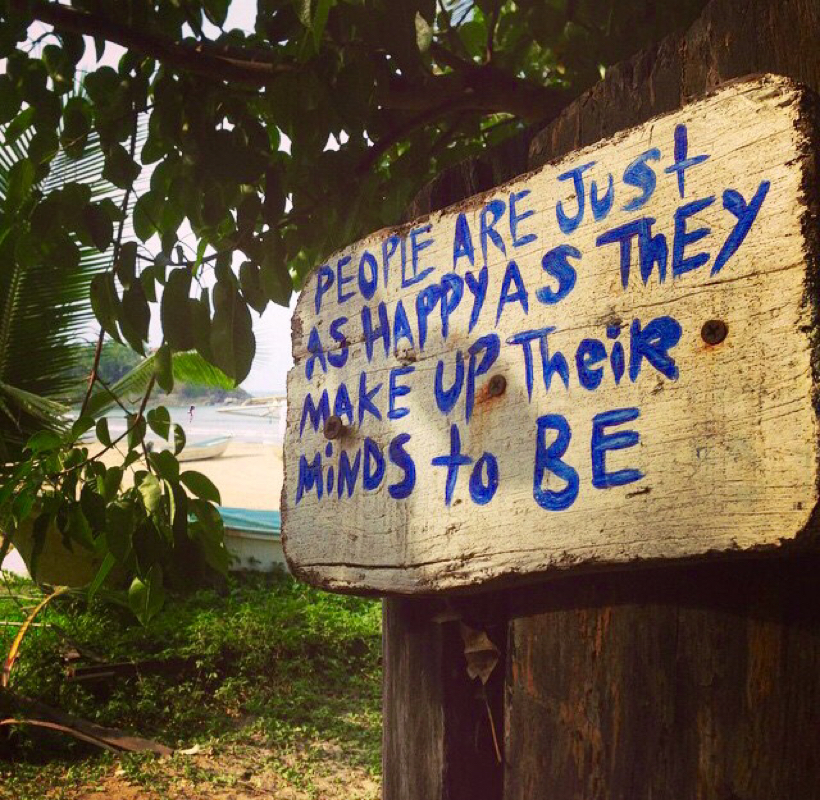|
This article is cross-posted with Elephant Journal: www.elephantjournal.com/2015/04/pain-is-inevitable-suffering-is-optional-handling-physical-pain-with-mindfulness We've all heard the whole “pain is inevitable, suffering is optional” idiom thrown around.
I hear it a lot in yoga, often referring to the emotional pain that comes in life, or perhaps the few seconds of “pain” you feel when you get into a triangle pose after a week away from your practice. Suffering in either situation being a choice. That phrase, as I used to know it, sounds so quaint to me now. Last week I had a tonsillectomy, and for those who've never had one let me tell you, it was one of the worst experiences of my life. I had a terrible recovery, but as with any dark cloud in life there is also a silver lining. The pain/suffering idiom became lodged in my mind, and it was the first time I truly, actually, honestly understood it. The suffering was real, and not in some esoteric yoga way, but in the real-life, excruciating pain way. It was a powerfully important lesson. Pain in all its forms just exists, there’s nothing we can do about it. But how we handle that pain is a choice. We can wallow it until it’s physically and emotionally out of control. Or we can change our perspective on it, see it as a means to an end, and ultimately be in charge of our own happiness. I’m definitely not the first, nor the last person to go through this. I talked to many friends about it beforehand, and those who had their tonsils removed as a child said something like, “It’s not so bad, I just remember eating a lot of ice cream!” Contrast that with those who has the surgery as an adult, who said, unequivocally, “It was the worst pain I’ve ever felt in my life!” So I was warned. I knew what I was getting into. Or at least, I “knew” what I was getting into. I came to learn over the week-plus of recovery that it’s one thing to imagine what the “worst pain in your life” might feel like, and it’s quite another thing to actually feel it. The value of experience cannot be underestimated. In those seven or so days I endured more pain than I could’ve ever imagined, the worst being night four, which seemed illogical (shouldn’t you be on the mend at that point?) but was true. Terribly true. That night the level of constant, throbbing, overwhelming pain—and in the throat which is so central to our everyday life—quite literally broke me. Forget swallowing food or water, it hurt just to breathe. My ears were cauldrons of fire. My jaw had just finished a round in the boxing ring. Speaking one word sent razor blades down my throat. No mindfulness exercise or act of positive thinking was enough. I was bulldozed by regret, “why did I agree to have this surgery?!” Flattened by anger, “you are such an idiot!” Conquered by suffering, “you are so weak!” At the peak of my suffering I briefly considered taking every pill I’d been prescribed, because it just wasn’t worth it anymore. Life was no longer a viable option. Thankfully, that idea was quickly dismissed by the quiet voice of rational thought I could still hear through the white noise of pain and narcotics. That emotional breakdown was a low point in my life. But sometimes it’s at our lowest that we finally learn to look up. At a very basic level, my emotions that night made the physical pain worse. Like so many other things, crying uses your throat. So that was my first realization: by wallowing in my pain I was making the pain stronger. Getting upset by it was actually counterintuitive, because it perpetuated the problem. The same lesson goes for many other parts of life: nerves before public speaking is counterintuitive, because that anxiety can actually cause you to make the verbal mistake you’re so nervous about. Anger at someone when they’ve talked smack is counterintuitive, because that anger causes you to be an asshole which actually encourages a negative persona. At a much broader level, letting myself get dragged down by the pain caused me to lose all hope. This was my most important realization: by wallowing in the pain I was letting the pain win. I had no choice in the matter—the pain existed no matter how many deep breaths I took or vicodins I popped. But the suffering I felt, that was entirely up to me. Instead of suffering I could be mindful about the pain, view it as part of the healing process, a means to a much more positive end, as evidence of my throat repairing itself. Wallowing in any pain—physical, emotional or yogi—and letting that pain drag me down, that is entirely up to me. I had a choice: continue to suffer or make up my mind to be happy. I chose to be happy. The next morning was day five, and I woke up in the same excruciating pain. But I also woke up with a smile, because I knew that in a day or so I would feel relief, in a week I would feel back to normal, and in a month my sleep apnea and constant colds would (hopefully) go away. I woke up with a smile, because I knew it was all downhill cruising from there. I woke up with a smile, because I saw the light at the end of the tunnel. I woke up with a smile, because I knew that I no longer had to suffer, and turns out that was really all I needed to know. |
Access Octomono Masonry Settings
blog searchauthorMy name is Jason Wise. Life's all about the journey, man. Find me on Instagram and Facebook. archives
May 2020
categories
All
subscribe |
